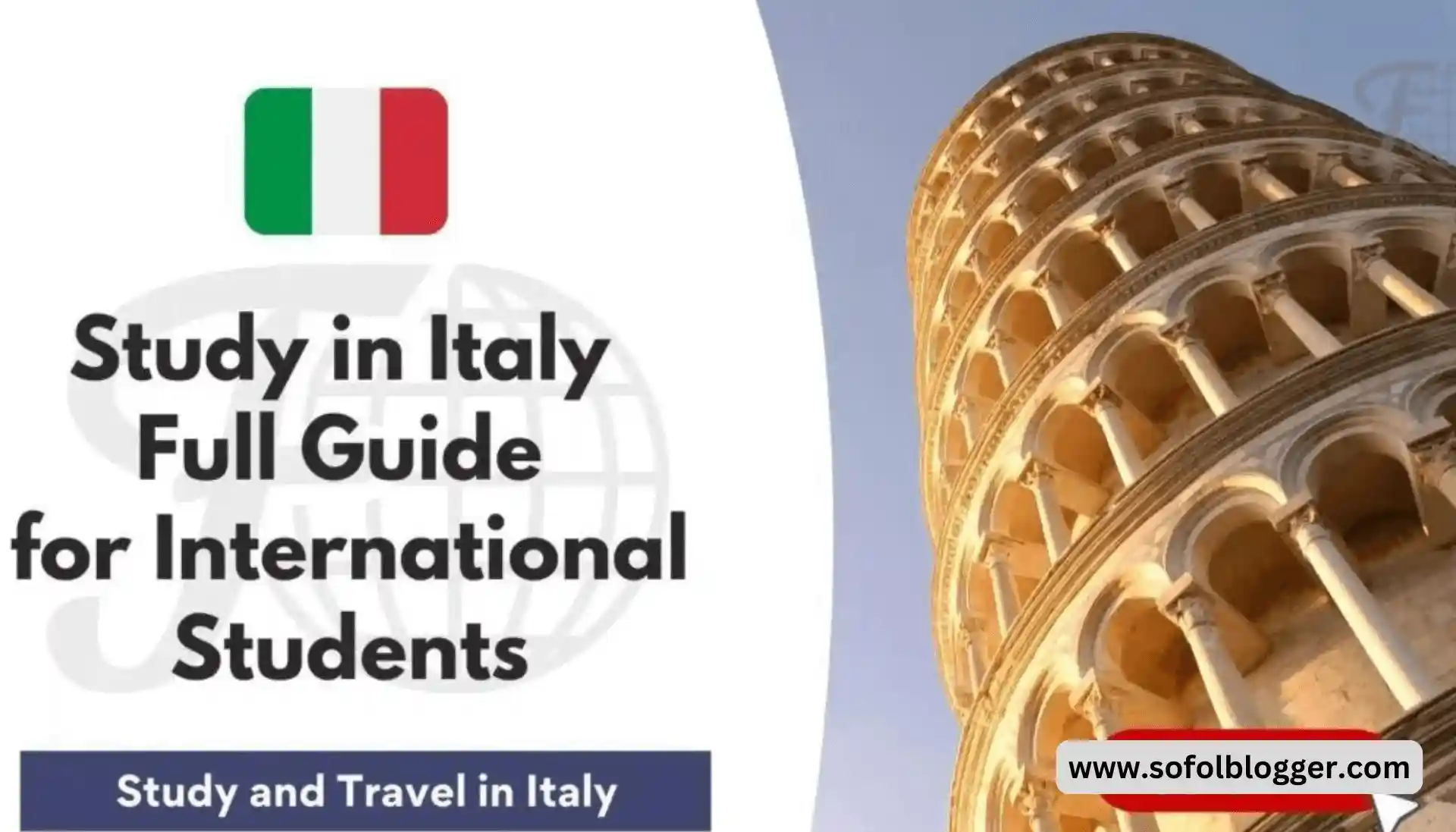Italy is a popular destination for international students due to its rich cultural heritage, high-quality education system, and welcoming environment. With its blend of historical landmarks, vibrant cities, and renowned universities, Italy offers a unique experience for students looking to further their education abroad.
Why Study in Italy?
1. World-Class Universities
Italy is home to some of the oldest and most prestigious universities in the world, such as the University of Bologna (established in 1088) and the University of Padua. These institutions offer high academic standards and have been a center of learning for centuries. Italy ranks highly in various academic fields, including art and design, architecture, engineering, and medicine.
Italy’s universities are known for their research output and have connections with industries, which is an added benefit for students seeking career opportunities after graduation.
2. Affordable Education
Compared to many other European countries, studying in Italy is relatively affordable. Tuition fees are lower, especially for public universities, and scholarships are widely available for international students. Many universities also offer merit-based or need-based scholarships that can significantly reduce the cost of studying.
The cost of living is moderate compared to other Western European countries, with affordable housing options and inexpensive food, especially in student cities like Bologna, Turin, and Naples.
3. Diverse Range of Programs
Italy offers a diverse range of programs at both undergraduate and postgraduate levels, many of which are available in English. Whether you’re interested in business, engineering, the humanities, or the fine arts, Italian universities have a wealth of courses to choose from. For those interested in subjects like archaeology, architecture, or fine arts, Italy’s rich history and artistic legacy make it a natural destination for study.
4. Cultural Experience
Italy is a country steeped in history and culture. From the Roman Colosseum to the Renaissance art in Florence, Italy offers students a chance to immerse themselves in a culturally rich environment. Studying in Italy also means living in a country with world-renowned cuisine, beautiful landscapes, and a laid-back lifestyle that emphasizes the importance of leisure and community.
Living in Italy provides ample opportunities to travel around Europe, thanks to the country’s central location and well-connected transportation network. Major cities like Rome, Milan, Venice, and Florence are hubs of cultural activities, festivals, and international events.
5. Language Learning Opportunities
While many programs are offered in English, living in Italy presents a fantastic opportunity to learn or improve your Italian. Learning Italian can open doors in industries like fashion, arts, design, and culinary arts, all of which are deeply rooted in Italy’s cultural identity. Moreover, speaking the local language can enhance your experience and integration into the community.
6. Quality of Life
Italy boasts a high quality of life with a strong emphasis on family, socialization, and enjoyment of life. The country’s Mediterranean climate, delicious food, and welcoming people make it an attractive place to live. Italian cities are known for their safety, and most universities provide support services for international students, including housing assistance and help with administrative procedures.
Education System in Italy
Higher Education Institutions
Italy’s higher education system is divided into universities and higher education institutions for fine arts, music, and design. Universities offer traditional academic degrees (bachelor’s, master’s, and doctoral degrees), while specialized institutions focus on creative fields. The Italian university system is part of the Bologna Process, which means its degrees are recognized across Europe, making it easier for students to study and work in other European countries.
Degree Structure
The structure of the Italian higher education system is similar to the European model:
- Bachelor’s Degree (Laurea Triennale): 3 years
- Master’s Degree (Laurea Magistrale): 2 years
- PhD (Dottorato di Ricerca): 3–4 years
In addition to traditional programs, Italy also offers professional degrees in fields such as medicine and law, which may have longer durations.
Admission Requirements
For undergraduate programs, students generally need to have completed secondary education and passed relevant entrance exams. For postgraduate programs, students must have a bachelor’s degree and, depending on the program, may need to provide a portfolio (for creative fields), academic transcripts, and language proficiency scores (such as IELTS or TOEFL for English programs, or an Italian language certificate for programs in Italian).
Tuition Fees and Scholarships
Public universities in Italy are relatively affordable, with tuition fees typically ranging from €900 to €4,000 per year, depending on the program and student’s country of origin. Private institutions, however, can be more expensive. International students can apply for various scholarships offered by the government, universities, or external organizations.
Some popular scholarships include:
- Invest Your Talent in Italy: A program offering scholarships and internships for postgraduate students.
- DSU Scholarship: Offered to students based on their financial situation.
- University-specific scholarships: Many universities offer merit-based or need-based scholarships to international students.
Popular Student Cities in Italy
1. Rome
As the capital city, Rome offers a mix of ancient history and modern life. It’s home to several prestigious universities like Sapienza University of Rome and Roma Tre University. Students can explore ancient ruins, such as the Colosseum and the Roman Forum, while enjoying a vibrant social scene.
2. Milan
Known as Italy’s fashion and business capital, Milan is a hub for international students interested in design, business, and arts. Institutions like Politecnico di Milano and Università Bocconi are world-renowned for their programs in engineering, business, and economics.
3. Bologna
A traditional university city, Bologna is known for its student-centered atmosphere and high quality of life. The University of Bologna, the world’s oldest university, is a leading institution in various academic fields. Bologna’s location in northern Italy also makes it a great base for exploring other European cities.
4. Florence
Florence, the birthplace of the Renaissance, is an ideal city for students interested in arts, history, and architecture. The University of Florence offers a wide range of programs, particularly in humanities and arts-related fields. The city’s rich history and art scene provide a perfect backdrop for creative minds.
5. Turin
Turin is known for its vibrant student life and growing tech industry. The Polytechnic University of Turin is one of Italy’s top engineering schools. Turin is also a culturally rich city with plenty of museums, galleries, and historic sites.
Tips for International Students
- Learn some Italian: While many courses are offered in English, knowing Italian will enhance your experience and allow you to interact more easily with locals.
- Apply early for scholarships: Many scholarships have early deadlines, so it’s important to start your application process well in advance.
- Explore Italy: Don’t miss the opportunity to travel around the country during your time off from studies. From the canals of Venice to the vineyards of Tuscany, Italy has so much to offer.
Conclusion
Studying in Italy offers a once-in-a-lifetime experience, combining academic excellence with cultural immersion. Whether you’re drawn to Italy for its history, art, or high-quality education, you’ll find an enriching environment that caters to a wide range of academic interests and career aspirations. With affordable education, world-renowned universities, and a unique cultural experience, Italy is an ideal destination for international students looking to broaden their horizons.










